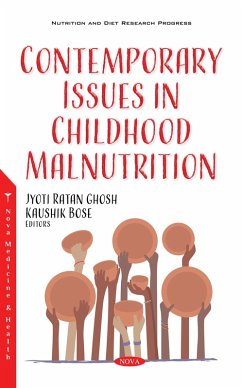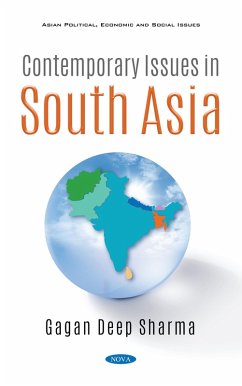
Contemporary Issues in Criminology in Africa (eBook, PDF)

PAYBACK Punkte
74 °P sammeln!
This book is a collection of both empirical and theoretical chapters on some significant and enduring issues in Africa. The various chapter submissions are compelling and do make substantive contributions to the literature on criminology in Africa. The first chapter contends that crimes motivated by superstitious beliefs occur in wide-ranging contexts, and are often driven by socio-economic and political factors. The most vulnerable members of African communities are the primary victims of these crimes. Given the clandestine nature of superstitious induced crimes, it is imperative and relevant...
This book is a collection of both empirical and theoretical chapters on some significant and enduring issues in Africa. The various chapter submissions are compelling and do make substantive contributions to the literature on criminology in Africa. The first chapter contends that crimes motivated by superstitious beliefs occur in wide-ranging contexts, and are often driven by socio-economic and political factors. The most vulnerable members of African communities are the primary victims of these crimes. Given the clandestine nature of superstitious induced crimes, it is imperative and relevant for government agencies in African countries to strategically collaborate with media and civil society organisations to launch massive public campaigns against all forms of superstition-driven crimes. The second chapter highlights some ethical and administrative challenges that a researcher could encounter in his/her quest to study incarcerated offenders. The study concludes that, while it is crucial to conduct a prison-based study, the researcher would have to adapt to institutional constraints of the respondents, to undertake considerable impression management and negotiations with both staff and inmates, and factor in the heightened security concerns that may affect the quality of the study and the safety of the researcher. The third chapter examines crimes against the state and the extent to which such issues are being tackled in Ghana. It concludes that the initiatives by various regimes to prosecute and to punish administrative crimes have yielded nominal outcomes. The fourth chapter probes the prison condition in South Africa (SA). The author argues that the prison situation is no better than those in other African countries. However, its historical racist system sets it apart from other African countries. The chapter concludes that the post-apartheid regimes' prison ideals have yet to be realized. The fifth chapter explores roles played by education, civil society organisations, and state institutions in the democratization and strengthening of the Ghanaian Criminal Justice System. Since Ghana relaunched its democratization initiative in 1992, the country has sustained successful presidential and parliamentary elections. Marked improvements have been seen in terms of human rights observation, freedoms, political tolerance, and openness to the global socio-economic and political landscape, yet there is still more room for improvement. The final chapter examines the lived experiences of students who have suffered crime on the University of Cape Coast campus. The analyzed data showed that factors such as negligence on the part of students, poor security services, and poor lighting systems on campus were the major contributing factors of crime (or conducive conditions for criminal activities). The study recommends that proper security measures such as the provision of tools and logistics and increasing the number of security personnel should be considered. This book is relevant for academicians in criminology, criminal lawyers, civil society organizations, policy makers, and human rights advocates.
Dieser Download kann aus rechtlichen Gründen nur mit Rechnungsadresse in A, B, BG, CY, CZ, D, DK, EW, E, FIN, F, GR, HR, H, IRL, I, LT, L, LR, M, NL, PL, P, R, S, SLO, SK ausgeliefert werden.













